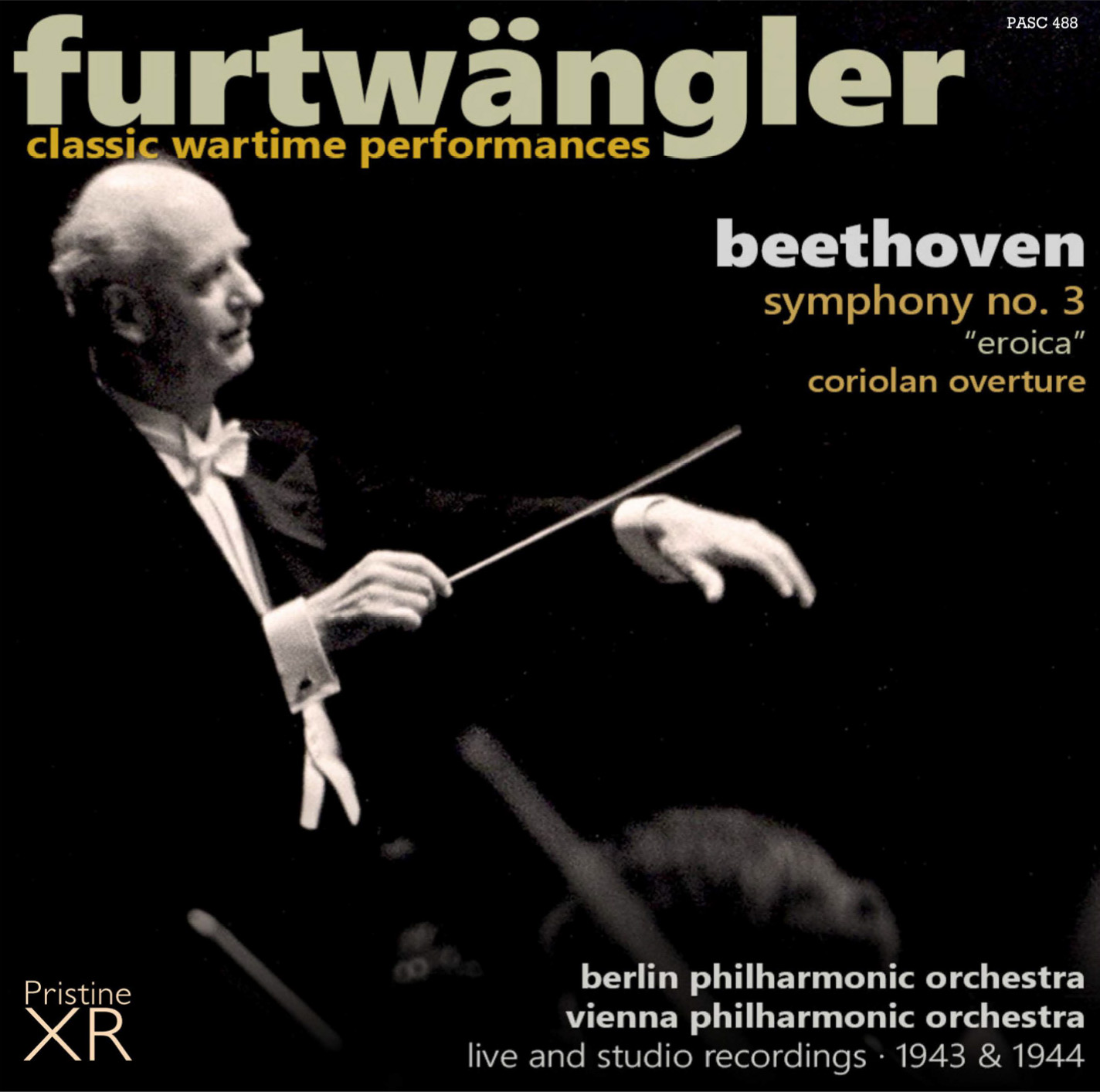Pristine Classical 1944 Recording of Beethoven's Third Symphony: Wilhelm Furtwängler

eXtensions - Monday 3 October 2016
|
Pristine Classical 1944 Recording of Beethoven's Third Symphony: Wilhelm Furtwängler |
 |
|
|
By Graham K. Rogers
I was slow to move to downloaded music, mainly because of availability. Based in Thailand since the late 1980s, there were no legal ways to buy online music (even buying software was difficult here) and the iTunes Music Store is a relatively recent arrival. I am currently revelling in the wide choices available to me with my Apple Music subscription, especially Radio. There were few decent sources for classical music. One was Classics Online, but following an organization change that ceased to be an acceptable source for me. One valuable source that remains is Pristine Classical which has a unique catalogue of remastered recordings, with some stunning output.
Every week, Pristine sends out an email of its latest offering and this Friday's was a recording of Eroica, Beethoven's Third Symphony, "Eroica". The download also includes a 1943 recording of the Coriolan Overture. The recording in Berlin of the Vienna Philharmonic Orchestra conducted by Wilhelm Furtwängler was made in 1944: not long before the end of World War Two. The performance is moving in the extreme. I have other recordings of Eroica, most notably one put out by Deutsche Grammophon of Herbert von Karajan conducting the Berlin Philharmonic Orchestra: a workmanlike rendition of the Symphony to the sort of standard one expects from the composer and orchestra.

Furtwängler's wartime Beethoven - Pristine Classical Cover art
Whether it is the excellent remastering job of Andrew Rose or the original arrangement, I was especially moved whenever the horns were featured. An example is the change in tempo in the First Movement (5' 30") where the slower push of the performance is indicative of a destruction waiting in the wings. The horns that signal an end to this section are strong yet desparate. Towards the end of the first Movement (14' 45"), the horns again add far more to the musical sensation than I had experienced from other recordings of this Symphony. Another notable horn section is near the middle of Movement Two (6' 50") when the slow Wagner-like power of the output (albeit brief) pins listeners to their seats. The strings are clean and clear as are pizzicato sections. There is no evidence of hiss or clicks from the original recording, which surprised Andrew Rose by its high quality. He had to check the recording in case he had inadvertently used a later version. Although the stirring nature of the music is impressive, so too are the quieter sections - such as an early cello section in the Second Movement (2' 00") - when the quality of the recording is so noticeable. According to Pristine notes Furtwängler tried to suppress this recording, post-War, because its excellence put his later output in the shade. After the shorter Scherzo Allegro vivace Third Movement, where the music expresses feelings of hope, tempered with occasional rumblings like thunder, the almost 13 minutes of the Finale are stunning. John Ardoin, commenting on the recording, writes: "along with the end of the Mahler Ninth Symphony, [the coda] comes as close as music can to capturing the sensation of death and dying." Particularly from 9' 00" on the music has a tremendous depth and is most disturbing particularly in the context of when (and where) this recording was made. The last 30 seconds were exhausting. I only wish a live audience could have been heard too.
Graham K. Rogers teaches at the Faculty of Engineering, Mahidol University in Thailand. He wrote in the Bangkok Post, Database supplement on IT subjects. For the last seven years of Database he wrote a column on Apple and Macs. He is now continuing that in the Bangkok Post supplement, Life. He can be followed on Twitter (@extensions_th) |
|

For further information, e-mail to
Back to
eXtensions
Back to
Home Page